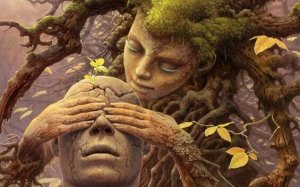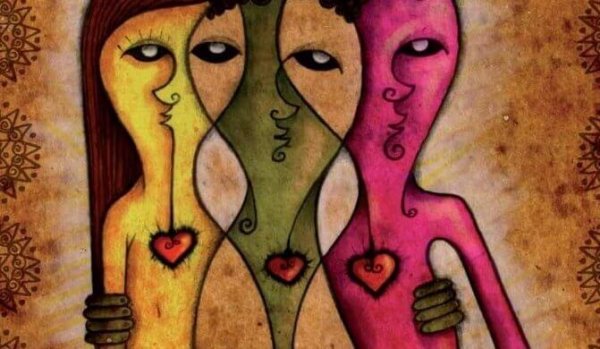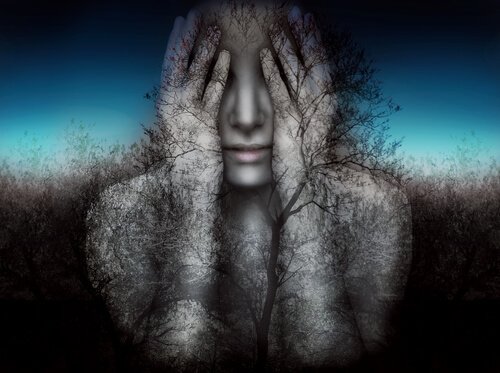Carl Jung's Eudaemonia: The Key to Happiness


Written and verified by the psychologist Valeria Sabater
Eudaemonia means having good fortune, wealth, or happiness. Carl Jung believed we should all foster it inside of us. To do that, he says you have to first connect with your own daemon. A daemon is an internal genius, an archetype that guides your unconscious passions and motivations. It is your essence, and you should listen to it more often.
If there’s one thing that we see in excess nearly everywhere (bookstores, social media, even fashion) is the need to be happy. All the ads on TV tell us that if we drink a certain soda or have a certain phone, we will feel new, wonderful feelings. There is a vision of happiness these days that has an almost imperative tone.
“Character is for man his daimon.”
-Heraclitus-
In this postmodern world, feeling an obligation to be happy ironically leads to unhappiness. Remember, for example, what Nassim Nicholas Taleb says in his book The Black Swan: we all still believe that the world is filled with white swans. We think that all we need to do is make enough of an effort. Then, everything they promised us when we were children will come true.
However, according to Taleb, our world is incredibly complex. So complex that when we see a black swan, we don’t know how to react. We are vulnerable because we don’t know how to deal with the unexpected or uncertain. So we will never find happiness if we look outside of ourselves. We have to strengthen our character, our daemon, like Carl Jung himself said.

Eudaemonia and the importance of knowing yourself
One of the people who inherited Carl Jung’s legacy was James Hillman. This Jungian analyst was the one who delved the deepest into the concept of archetypes and, more concretely, the idea of the daemon.
In his book The Soul’s Code he reminds us of the importance of connecting with your inner genius or “demon” in order to have a full and truly happy life. To better understand this interesting theory, let’s take a closer look at what Professor Hillman talks about in his book.
What is a daemon?
- Daemon comes from Greek, meaning demon. However, it doesn’t have a negative connotation. It actually symbolizes the highest essence of a human being. In Aristotle’s ethics, the daemon was virtue and wisdom in the most practical sense.
- Carl Jung explained that the daemon lives in our unconscious mind. It guides our actions, it motivates us, it whispers ideas, it inspires us and gives voice to our intuition. However, modern society and the pace of life distracts us. It’s common to distance yourself from this inner voice.
- Education geared towards uniformity and the job market doesn’t value originality. It shrinks the opportunity to bring out your inner spirit. But this entity is full of vitality. It has enormous potential and wants more than anything to release its creative potential. However, we don’t often dare to give it the space it needs.

The daemon and eudaemonia: a question of valor
Dr. James Hillman believes that few things are as significant in life as learning to listen to that spirit, that magical, colorful entity that lives in our motivation. As inscribed in Apollo’s temple in Delphi: “know thyself.”
- When you stop looking outside of yourself for answers and stop worrying about what others want, you will finally be on the path to knowing yourself. Only then can you make contact with your daemon.
- That being said, embracing eudaemonia isn’t always easy. Sometimes, your daemon wants things that the people around you don’t understand. Maybe a lawyer doesn’t want to practice law anymore. Maybe he really wants to be an artist. Perhaps the famous artist who doesn’t want to create anymore. His daemon is asking him to do humanitarian work. Your daemon might want you to be more independent, to find your own freedoms that you don’t dare to ask for.
Eudaemonia takes a lot of courage. Your daemon is restless and hungry for new experiences. Consequently, if you don’t listen to that inner voice, your daemon will punish you. As Carl Jung reminds us, if you aren’t capable of listening to the daemon’s needs, your soul will fall ill. Why? Because going against your desires and motives makes you unhappy.

How can you cultivate eudaemonia?
You know that nothing is as crucial as self-knowledge. Connecting with your desires, your essence, identity, and personal values is one way to embrace your daemon and recognize it. However, it isn’t enough to just say “I know you are there.” You must free it to create, to be expressed.
Cultivating authentic eudaemonia will mean making changes. It means setting aside what the outside world imposes on you. Instead, you have to learn to create your own reality. You must be fully aware of the complexity of your surroundings, where uncertainty and unforeseen difficulties are constant.
Your daemon wants things. However, in order to reach eudaemonia, you have to deal with situations in which it isn’t so easy to express yourself.

With that in mind, it is a good idea to remember what Immanuel Kant once said: if you want to be happy, you have to learn to be clever. In other words, you need to choose the best methods to maximize your best well-being. It’s pretty clear that neither the means nor the end is easy.
But one advantage is that you always have Jungian therapy to help. This goal of this therapeutic approach is to get you closer to eudaemonia. It aims to help you discern your uniqueness and power to be happy in your own way.
This text is provided for informational purposes only and does not replace consultation with a professional. If in doubt, consult your specialist.








